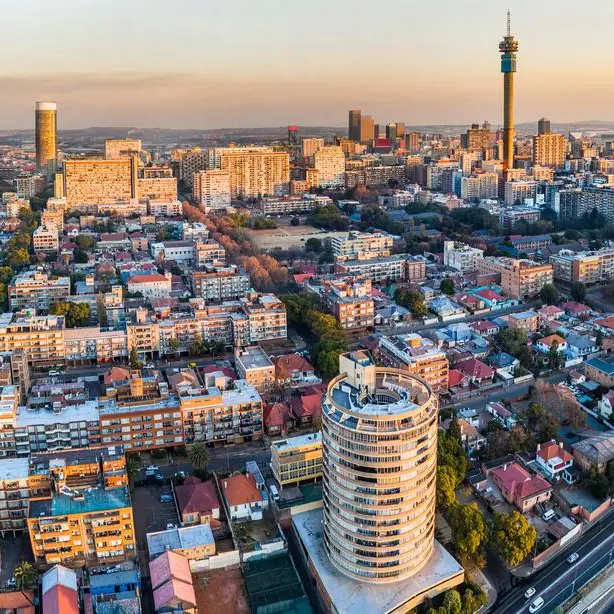PHOTO
* Government silos company contracted with "fake entities"
* Company left 700,000 tonnes of gov wheat storage unused
* Bread subsidy reforms raised food bill, contrary to min claim
By Eric Knecht and Maha El Dahan
CAIRO/ABU DHABI, Aug 28 (Reuters) - A parliamentary fact-finding commission's report into corruption in Egypt's wheat industry finds that the government played a key role in "wasting public funds" in its costly food subsidy programme.
Reuters reviewed a copy of the report that will be presented in parliament on Monday. It states that government entities neglected their own storage facilities in favour of less regulated private sites, made contracts with "fake entities," and oversaw flawed reforms that caused subsidy spending to increase rather than decrease as publicly stated.
From silo contracts to budgetary analysis to testimony from industry officials, the more than 500-page fact-finding report into wheat corruption points to government involvement in mismanaging, and at times facilitating graft in, subsidies intended to encourage agriculture and feed tens of millions.
"There are obvious flaws that rise to the level of complicity in the supply ministry and all of its bodies supervising the wheat procurement system," the report said.
The supply ministry spokesman said he had resigned from his post and could no longer comment on the issue when contacted by Reuters.
Egypt, the world's largest importer of wheat, has been mired in controversy in recent months over whether much of the roughly 5 million tonnes of grain the government said it procured in this harvest exists only on paper, the result of local suppliers falsifying receipts to boost government payments.
Industry officials have estimated that upward of 2 million tonnes could be missing from silos, a deficit that could force Egypt to import large quantities of additional grains to meet local demand even as it faces an acute hard currency shortage.
A Reuters special report earlier this year detailed how the government's wheat supply chain was riddled with corruption - from fraudulent wheat purchases by local suppliers to hacked smart cards that allowed bakers to steal flour - that has cost the country hundreds of millions of dollars per year
LAX OVERSIGHT
The parliamentary report provides new insight into how government bodies may have played a direct role in many of the corrupt practices, particularly by awarding contracts to private suppliers who had lax oversight of their storage facilities, while leaving government sites unused.
The supply ministry's Holding Company for Silos housed over 1 million tonnes of wheat in less-regulated private sector storage this season while leaving 700,000 tonnes of its own storage capacity unutilised - a violation of regulations that require government spaces to take priority, the report found.
The holding company used just 29.7 percent of the silo capacity it had available, it said.
"Despite that (unused storage), the company contracted with private sector companies to rent 16 silos and 35 shounas (open air sites) to store a total of 1,147,319 tonnes of wheat."
"Not using the full storage capacity owned by the (government) company caused it to bear huge losses...and made it take on the cost of paying to rent from the private sector."
The report also called into question the legality of many of the contracts made with the private sector sites.
Government firms contracted with "storage sites that had legal actions taken against them previously but which had since changed their commercial names", and with those that "did not have a commercial registration or a tax identification."
"This means that contracting was done with fake entities," the report stated.
Last week Supplies Minister Khaled Hanafi resigned amid growing criticism of his management of the subsidies. His exit was the biggest fallout from the wheat scandal to date.
Hanafi repeatedly said that bread system reforms introduced under his watch in 2014 have saved Egypt in terms of both money and strategic commodities, an assertion the report undermines.
He was not immediately available for comment about the parliamentary report when contacted by Reuters.
Government spending on bread subsidies rose by 3.91 billion Egyptian pounds ($440.32 million), or 15.9 percent, in the 2014-15 financial year, and by an additional 1.89 billion ($212.84 million), or 6.6 percent, in 2015-16, the report states, citing Finance Ministry documents.
"Subsidies increased, and did not decrease as a result of the bread system as the supply ministry continuously claims." ($1 = 8.8799 Egyptian pounds)
(Editing by Mark Heinrich) ((eric.knecht@thomsonreuters.com; +20 2 2394 8102; Reuters Messaging: eric.knecht.thomsonreuters.com@reuters.net))
* Company left 700,000 tonnes of gov wheat storage unused
* Bread subsidy reforms raised food bill, contrary to min claim
By Eric Knecht and Maha El Dahan
CAIRO/ABU DHABI, Aug 28 (Reuters) - A parliamentary fact-finding commission's report into corruption in Egypt's wheat industry finds that the government played a key role in "wasting public funds" in its costly food subsidy programme.
Reuters reviewed a copy of the report that will be presented in parliament on Monday. It states that government entities neglected their own storage facilities in favour of less regulated private sites, made contracts with "fake entities," and oversaw flawed reforms that caused subsidy spending to increase rather than decrease as publicly stated.
From silo contracts to budgetary analysis to testimony from industry officials, the more than 500-page fact-finding report into wheat corruption points to government involvement in mismanaging, and at times facilitating graft in, subsidies intended to encourage agriculture and feed tens of millions.
"There are obvious flaws that rise to the level of complicity in the supply ministry and all of its bodies supervising the wheat procurement system," the report said.
The supply ministry spokesman said he had resigned from his post and could no longer comment on the issue when contacted by Reuters.
Egypt, the world's largest importer of wheat, has been mired in controversy in recent months over whether much of the roughly 5 million tonnes of grain the government said it procured in this harvest exists only on paper, the result of local suppliers falsifying receipts to boost government payments.
Industry officials have estimated that upward of 2 million tonnes could be missing from silos, a deficit that could force Egypt to import large quantities of additional grains to meet local demand even as it faces an acute hard currency shortage.
A Reuters special report earlier this year detailed how the government's wheat supply chain was riddled with corruption - from fraudulent wheat purchases by local suppliers to hacked smart cards that allowed bakers to steal flour - that has cost the country hundreds of millions of dollars per year
LAX OVERSIGHT
The parliamentary report provides new insight into how government bodies may have played a direct role in many of the corrupt practices, particularly by awarding contracts to private suppliers who had lax oversight of their storage facilities, while leaving government sites unused.
The supply ministry's Holding Company for Silos housed over 1 million tonnes of wheat in less-regulated private sector storage this season while leaving 700,000 tonnes of its own storage capacity unutilised - a violation of regulations that require government spaces to take priority, the report found.
The holding company used just 29.7 percent of the silo capacity it had available, it said.
"Despite that (unused storage), the company contracted with private sector companies to rent 16 silos and 35 shounas (open air sites) to store a total of 1,147,319 tonnes of wheat."
"Not using the full storage capacity owned by the (government) company caused it to bear huge losses...and made it take on the cost of paying to rent from the private sector."
The report also called into question the legality of many of the contracts made with the private sector sites.
Government firms contracted with "storage sites that had legal actions taken against them previously but which had since changed their commercial names", and with those that "did not have a commercial registration or a tax identification."
"This means that contracting was done with fake entities," the report stated.
Last week Supplies Minister Khaled Hanafi resigned amid growing criticism of his management of the subsidies. His exit was the biggest fallout from the wheat scandal to date.
Hanafi repeatedly said that bread system reforms introduced under his watch in 2014 have saved Egypt in terms of both money and strategic commodities, an assertion the report undermines.
He was not immediately available for comment about the parliamentary report when contacted by Reuters.
Government spending on bread subsidies rose by 3.91 billion Egyptian pounds ($440.32 million), or 15.9 percent, in the 2014-15 financial year, and by an additional 1.89 billion ($212.84 million), or 6.6 percent, in 2015-16, the report states, citing Finance Ministry documents.
"Subsidies increased, and did not decrease as a result of the bread system as the supply ministry continuously claims." ($1 = 8.8799 Egyptian pounds)
(Editing by Mark Heinrich) ((eric.knecht@thomsonreuters.com; +20 2 2394 8102; Reuters Messaging: eric.knecht.thomsonreuters.com@reuters.net))





















